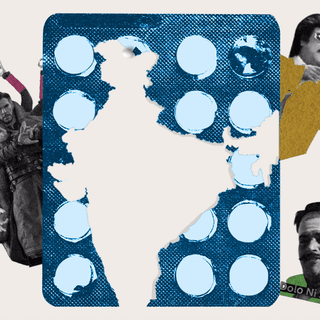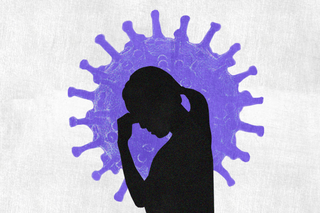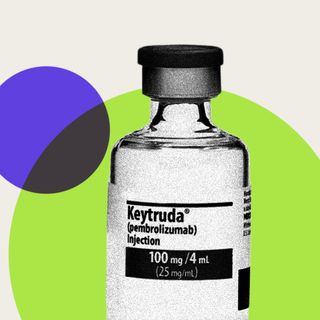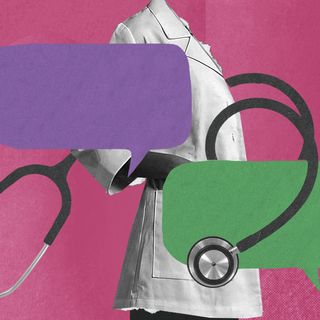
Emotional Distress May Increase Risk of Covid19 Infection and Severity of Symptoms: Study
“…distress is not only a consequence of living with the risk of Covid19, but may also be a risk factor for who gets it and how severe the disease is.”

“Mental” health is often perceived as something that exists outside the realm of “physical” health. Yet, the two are very much connected. According to a recent study, psychological distress of any kind can make one more vulnerable to contracting Covid19, while also influencing its outcome.
“I have always been interested in whether or not (and how) psychological factors influence health and, in particular, whether the effects on health are clinically relevant, i.e., do they influence who gets a disease and/or how we respond to disease,” said Kavita Vedhara, a professor of health psychology at the University of Nottingham in the U.K., who was involved in the longitudinal study conducted during the pandemic.
The findings serve to answer her question. Published in Annals of Behavioral Medicine, the study found that people, who are already experiencing greater psychological distress are more likely to contract a Covid19 infection. Not only that, but they also face higher chances of dealing with more severe symptoms once infected.
Unfortunately, however, as the study itself points out, “During the Covid19 pandemic, there has been a well-documented deterioration in psychological wellbeing and increased social isolation.” This means that we’re not only caught in the throes of a global pandemic — caused by a constantly-mutating deadly virus — but we’re finding ourselves more prone to not just the infection, but also unquantifiable mental distress.
“We all know the effects of this pandemic on our emotional health have been brutal. But these findings show that, as has been observed many times before in the context of other viruses, that distress is not only a consequence of living with the risk of Covid19, but may also be a risk factor for who gets it and how severe the disease is,” Vedhara noted.
Past research has also uncovered a similar link. People have a higher likelihood of being infected by the novel coronavirus, and suffering worse outcomes, including “higher rates of hospitalization and death.”
How does mental health affect one’s susceptibility to a respiratory infection? Scientists believe it’s simple: “stress weakens the immune system.” The longer the duration of stress, the greater its impact on one’s bodily immunity. One study found that during their three-day term exam periods, students “had fewer natural killer cells, which fight tumors and viral infections. They almost stopped producing immunity-boosting gamma interferon and infection-fighting T-cells responded only weakly to test-tube stimulation.”
Related on The Swaddle:
Covid19 Pandemic Caused More “Mass Trauma” Than World War II: WHO
The longer the pandemic lasts, so does our anxiety of either being infected by it ourselves or watching loved ones battle it. With the end of the pandemic nowhere in sight as newer mutants continue to emerge, the situation then seems dire.
In the meantime, an article by the American Psychological Association suggests “social ties may indirectly strengthen immunity because friends — at least, health-minded friends — can encourage good health behaviors such as eating, sleeping, and exercising well.” However, under the pandemic, communication between people has been affected too. While technology has enabled us to stay connected, people are still adjusting to the idea of maintaining their relationships with friends over Zoom calls and texts.
Despite the World Health Organization’s insistence that “physical distancing” — not “social distancing” — better captured the disease-control protocols, people’s social lives have suffered. While it may be for the greater good, it’s called the “new” normal for a reason, and unlearning centuries’ and decades’ worth of norms on how to socialize doesn’t happen in just two years. And so, in the middle of the pandemic, we have found a “chronic loneliness epidemic” rearing its head. And loneliness, as research suggests, can make one more prone to anxiety, depression, and even cognitive decline — worsening the mental health crisis.
The findings of the present study are alarming for India, where 56 million people are already suffering from depression and 38 million from anxiety disorders. “India does not simply have a mental health challenge… it is facing a possible mental health epidemic,” President Ram Nath Kovind had said in 2017. That was before the pandemic. On top of that, the mental health professional-to-people ratio in India is dismal, and therapy being prohibitively expensive in India makes mental healthcare difficult to access for many.
As such, our best bet is to strengthen our existing mental healthcare infrastructure and find ways to make it more accessible to people across different socio-economic strata. This can enable people to manage their psychological distress better.
Devrupa Rakshit is an Associate Editor at The Swaddle. She is a lawyer by education, a poet by accident, a painter by shaukh, and autistic by birth. You can find her on Instagram @devruparakshit.
Related


An Existing Cancer Drug Could Help Cure HIV One Day, Find Scientists
